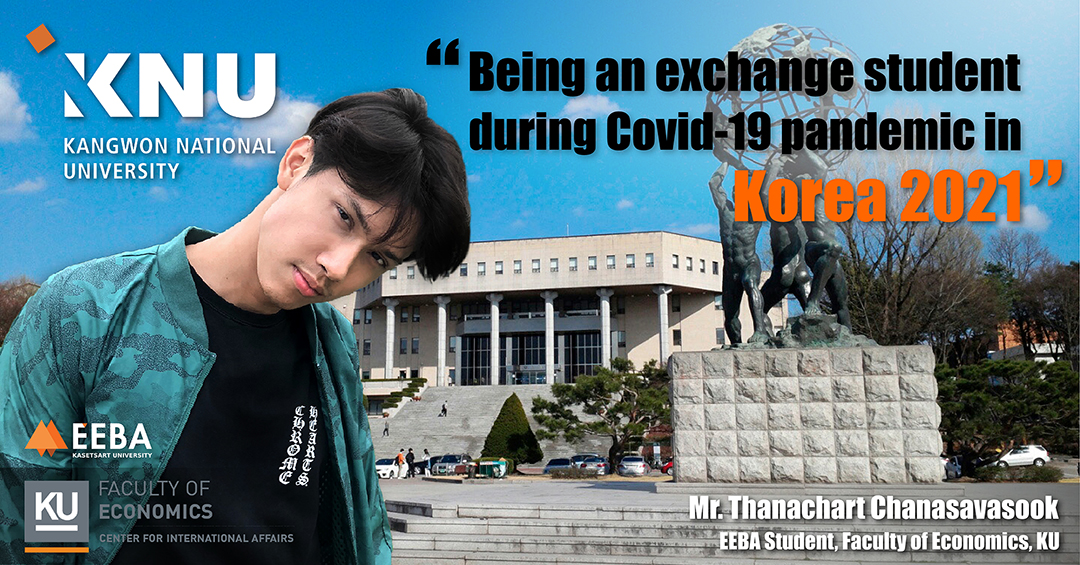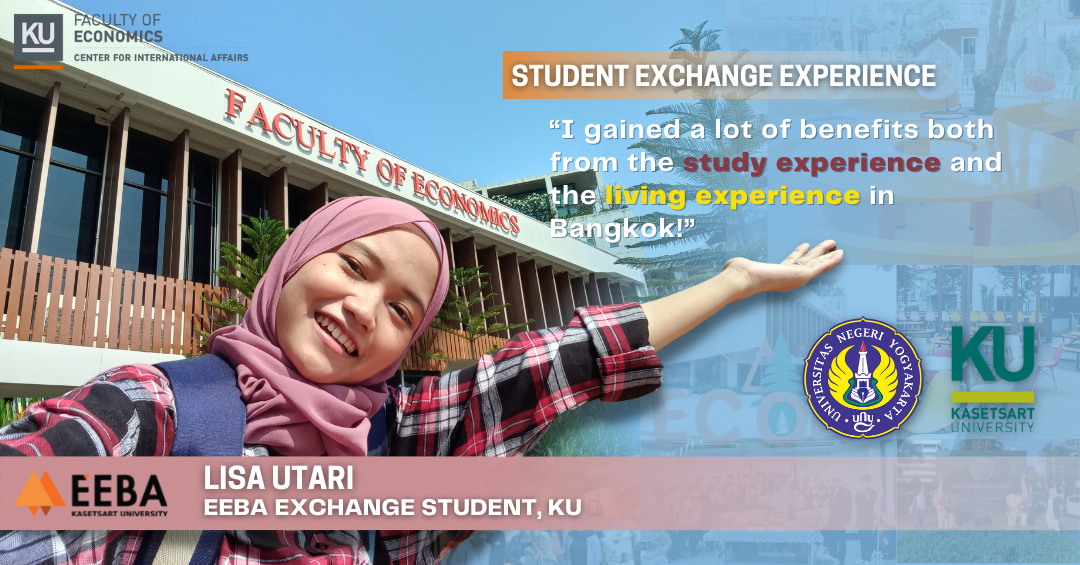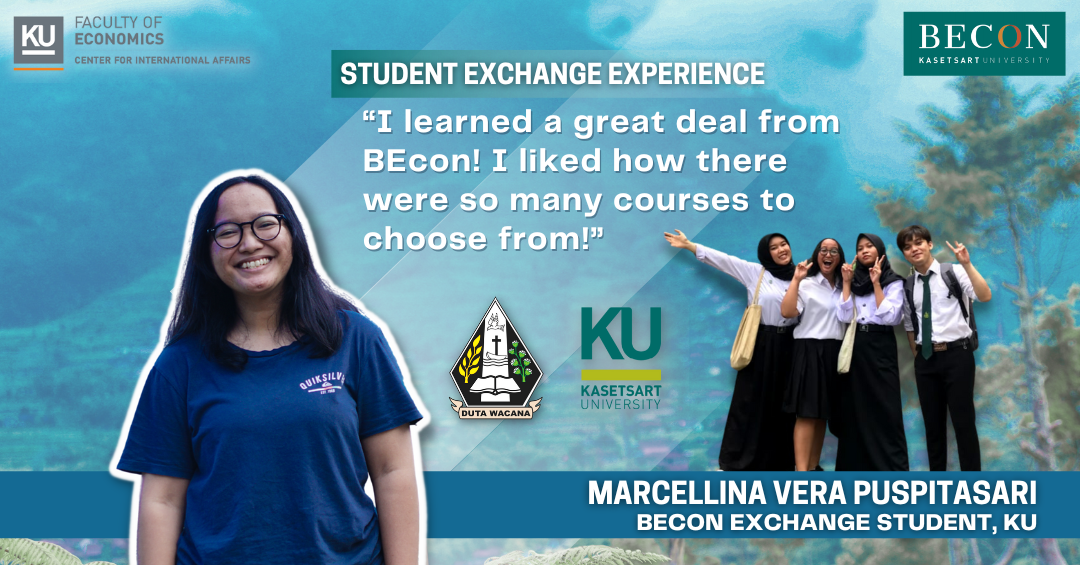“Being an exchange student during Covid-19 pandemic in Korea 2021”
“Studying abroad is a rare experience that every student should do before graduating!”
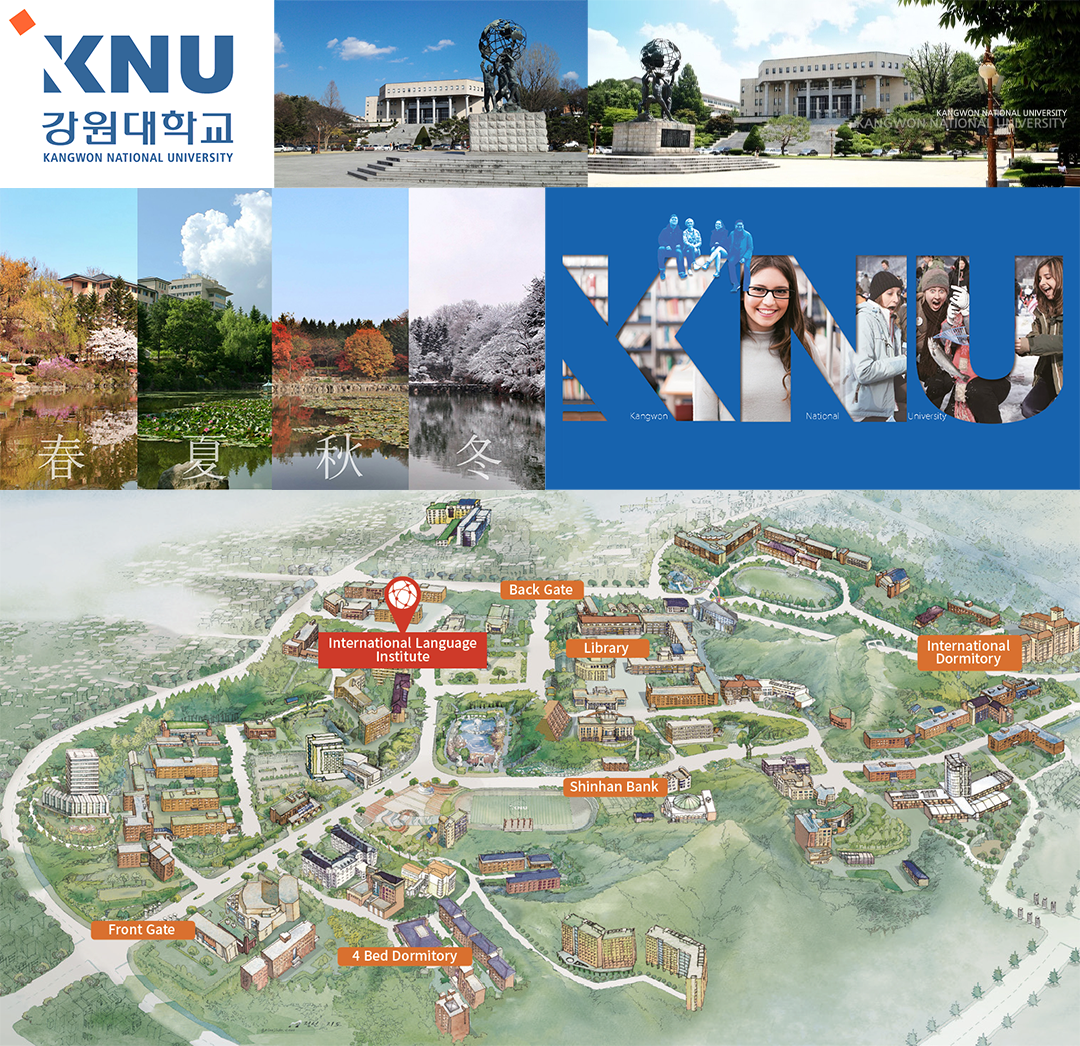
About Kangwon National University
Kangwon National University (KNU) was founded as a provincial agricultural college in 1947 and transformed into a state university in 1978. KNU is among the top 30 best educational institutions in South Korea and is one of the 10 core national universities across the country.
Kangwon National University is a jewel of Chuncheon, where the university constructed its campus. The university manages to secure high ranks in the national ratings of South Korea every year. It has steadily expanded encompassing a full spectrum of academic fields, comprising 19 colleges with 93 departments and 5 graduate schools. It also offers a special Korean language program from the Division of Language Education designed especially for non-native speakers and foreigners.
KNU has one of the largest number of students among universities in Korea – with over 38,000 enrolled students and about 1,600 academic and faculty staffs. It has a solid network of 281 partner universities in 58 countries around the world. KNU is operating academic courses as well as a variety of international programs including exchange students, dual degree, language study abroad, summer programs, etc. every year to provide full support towards the training of future talents with global senses and communication skills.
An exchange student for a semester at Kwangwon National University in Korea
Hi there, I’m Touch and my real name is Thanachart Chanasavasook. I am an EEBA senior student at the Faculty of Economics, Kasetsart University and I am majoring in Finance (Applied Finance for Entrepreneurs). I was born in Phuket, a southern province in Thailand in 1998 and then moved to Bangkok ever since.
I am quite an easy-going person, I love traveling and meeting new friends. In 2018, I decided on Kasetsart University as my choice wherein I could pursue my Bachelor’s degree. This was a turning point in my life because I had the chance to gain new experiences through my classes and the extracurricular activities that I participated in. During junior year, I was also a member of the Economics Faculty Student Association.
Early 2021 and in my last semester of being a university student, I had a chance to become an exchange student at Kangwon National University in South Korea. I was granted scholarship and financial support from “The Capacity Building of KU Students on Internationalization Program” and “AIMS Program” (from the host university). As we all know, due to the uncertain pandemic situation, procedures didn’t go smoothly, starting from my visa-approval registration. This was very challenging for me, nevertheless, I was determined to make it work.
What’s life like in Korea for you?
Life in Korea was something I was not used to, but as I traveled along with my other two friends and classmates, we managed to overcome situations by helping each other. The problem we encountered every day was the language barrier. English was not commonly spoken in Korea and we found that the Korean language was too fast for either one of us to understand or comprehend.
On our arrival to Incheon Airport on March 9, 2021, we expected to have some free time. Unfortunately, we had some problems with our documents, we all know that travel documents are especially important nowadays because of the pandemic. We got detained at the immigration counter in the airport for almost 2 hours because of an issue with having to verify our identity and match it with our Covid-19 PCR-test. It was very difficult having to explain in English and no one seemed to understand at all.
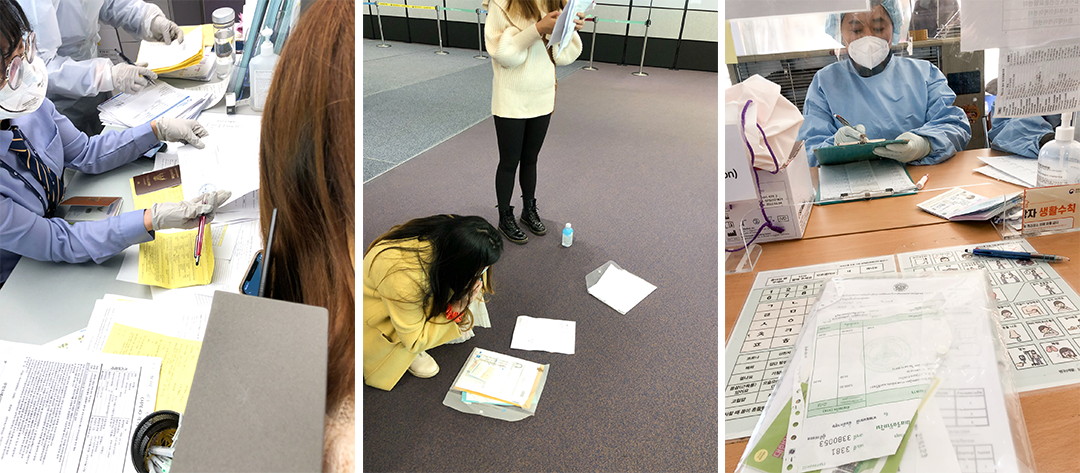
I remembered it was around five in the morning at that time, and so normally no one would be awake to pick up our calls for help. We managed to get a verification proof from the hospital back in Thailand where we took our tests to confirm our documents. After that, we had to get another Covid-19 test as part of the regular procedure before heading to our quarantine place.
After the 14-day quarantine period, we were quite familiar with using the local apps such as Naver, Kakao Taxi and Kakao Chat. These made our stay in Korea easier and we started to understand people’s expressions and some useful Korean words.
Getting lost while riding taxis and freezing in the cold weather were just some of the things I couldn’t get used to during my stay there. The city where we stayed, Chuncheon, is cold and humid all year even in the summer and knowing that January to April are the coldest months, you can imagine me needing to always wear a very thick jacket whenever I go out. Lucky me, the local food was really good though, so overall, I still found my daily life pretty great!
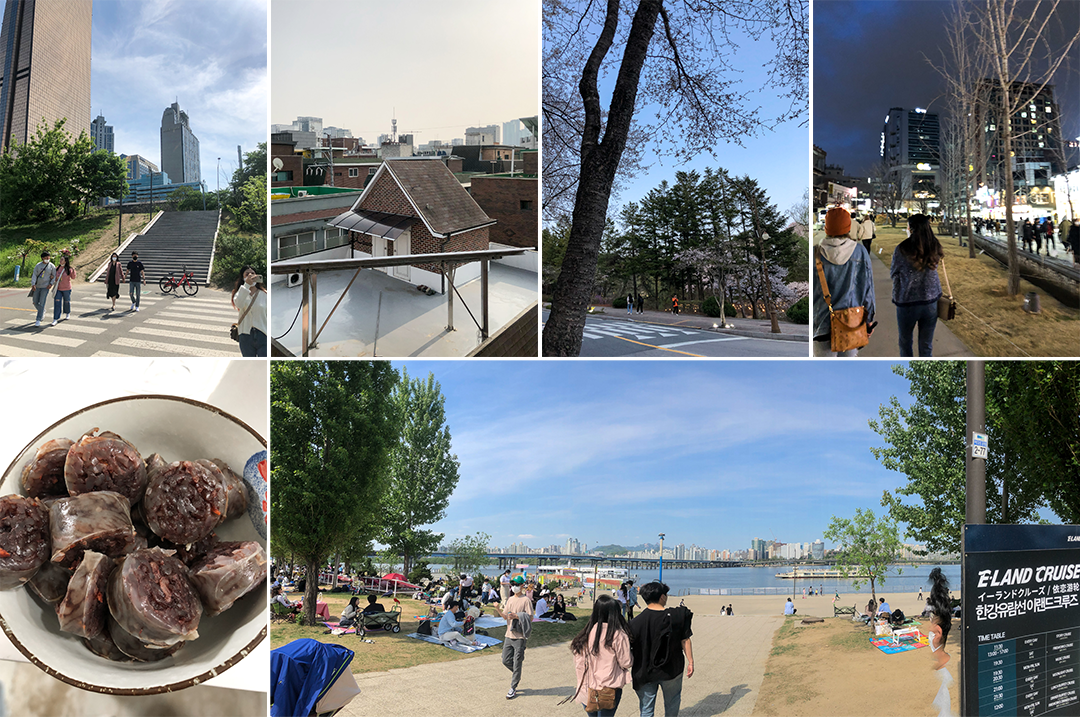
Studying at Kwangwon National University…
I would say the teaching methods are very practical and I can tell the students are active and assertive. Every Thursday, our class will have a special topic discussion assigned by the professor for us to share our own research among the group. We can decide on one representative to relay our ideas and conclusion from our group discussions.
I also took Korean classes. Honestly, learning Korean gave me a headache most of the time and I was not confident enough to speak the language in front of the class. However, the professor was very kind, and while helping me, he was trying to learn the Thai language as well.

How different was Korea from Thailand?
Personally, I think the food, fashion and culture are not that different from Thailand’s. What I was impressed with while living in Korea was the weather and the discipline of the people. Koreans are kind and just people similar to Thais and they really give importance on showing respect to each other.
Everyone there follows public regulations strictly. I rarely saw littering in a public area even if there were no signs around. I also admit that experiencing Korea showed me that the country indeed has a big influence on Thailand when it comes to clothing styles and fashion. I know this because the outfits we usually see in most Thai teenagers are very much in common in Korea.
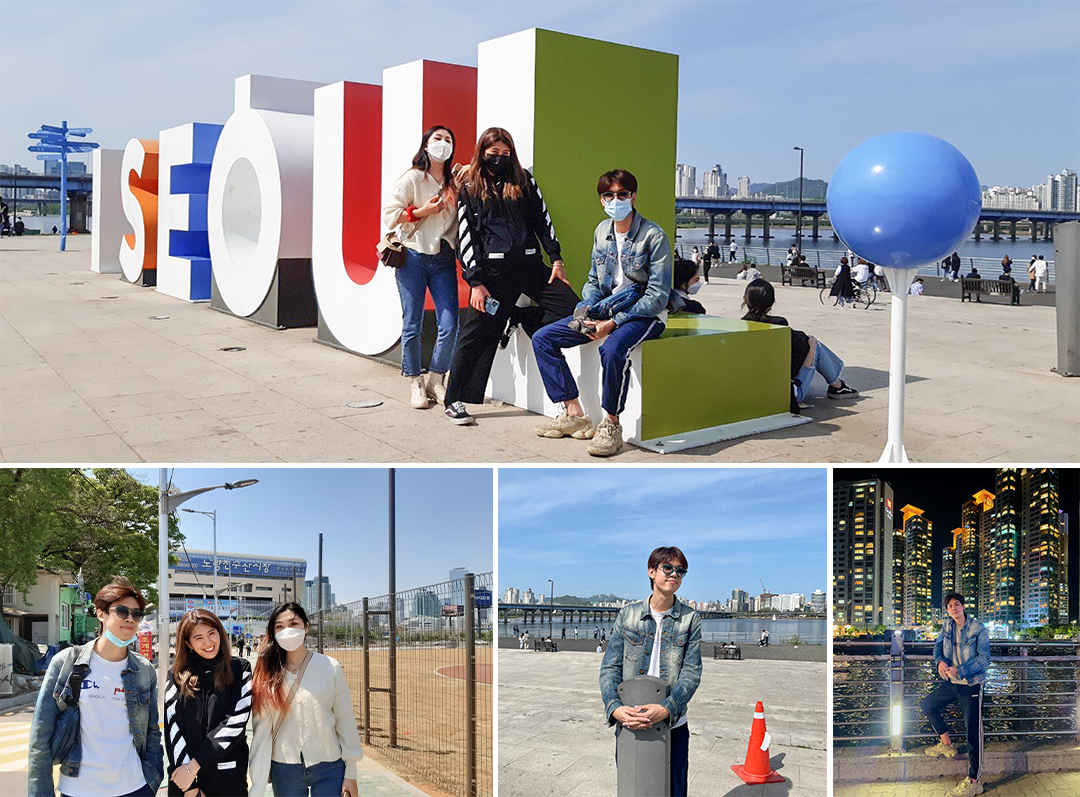
Being an exchange student was…
Great! I’d like to mention my experience of having Korean friends especially. They are very approachable and considerate. I felt comfortable and included in the group because they treated me like a close friend. One time while I was in my dormitory, I received an invitation to join a student club called “Koreigner”. There, I met lots of people and made many friends within the first week I moved into the dormitory. Despite the Covid-19 situation, we had meetings once a week every Thursdays in the afternoon for some activities, culture exchange and dinner.
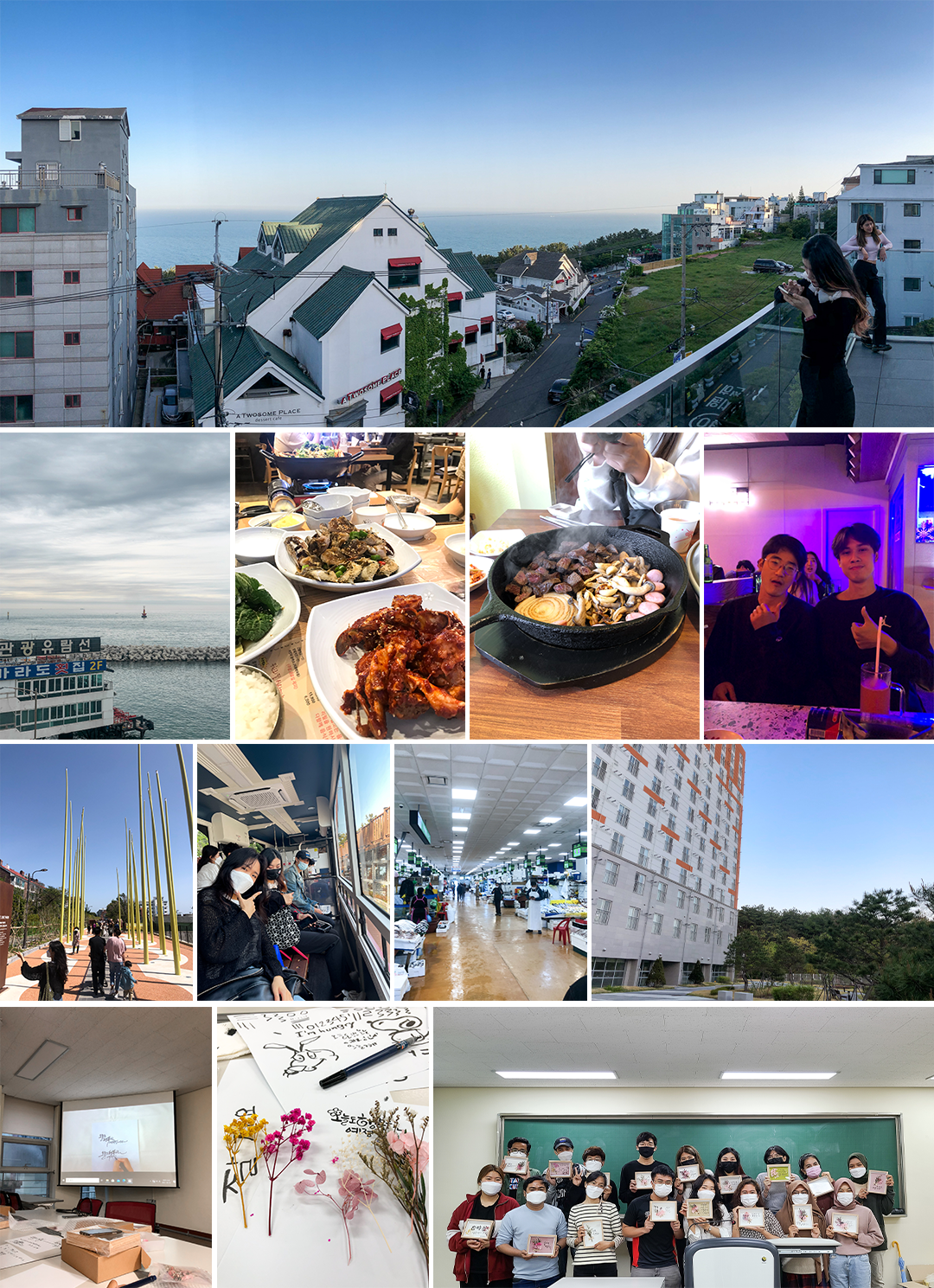
How did you cope with the coronavirus situation while in Korea?
Firstly, I avoided using public transportation and I used taxis most of the time. Although the public safety measures in Korea are very strict, I always bring an alcohol gel with me. I also made it a routine to not go back to my dorm later than 10:00 at night. Whenever we had face-to-face meetings, we split people into three or four groups to avoid crowding. In Chuncheon, there is a free Covid-testing site for foreigners. I visit the site often every month, so I wasn’t worried too much. We also traveled across the city to Busan for a vacation with our professor and everything went smoothly. We couldn’t let Covid-19 stop us from still having a time for fun!
Why do you think your fellow students should participate in an exchange program opportunity?
Firstly, I think it’s a rare experience that every student should engage in before graduating. Being an exchange student will help you discover yourself and will give you the drive and motivation to keep exploring new things, even the things you might have been fearing to do before.
Second, your routine will certainly be changed. While living abroad, you will have your own time and space to see yourself in many aspects through the different cultures and communities you’ll be in.
Lastly, do it because you will surely gain broader general knowledge, including being able to practice your communication skills in a foreign language. I believe that if you want to learn a language, you can only achieve that goal by experiencing and immersing yourself in an environment where that language is spoken natively.

